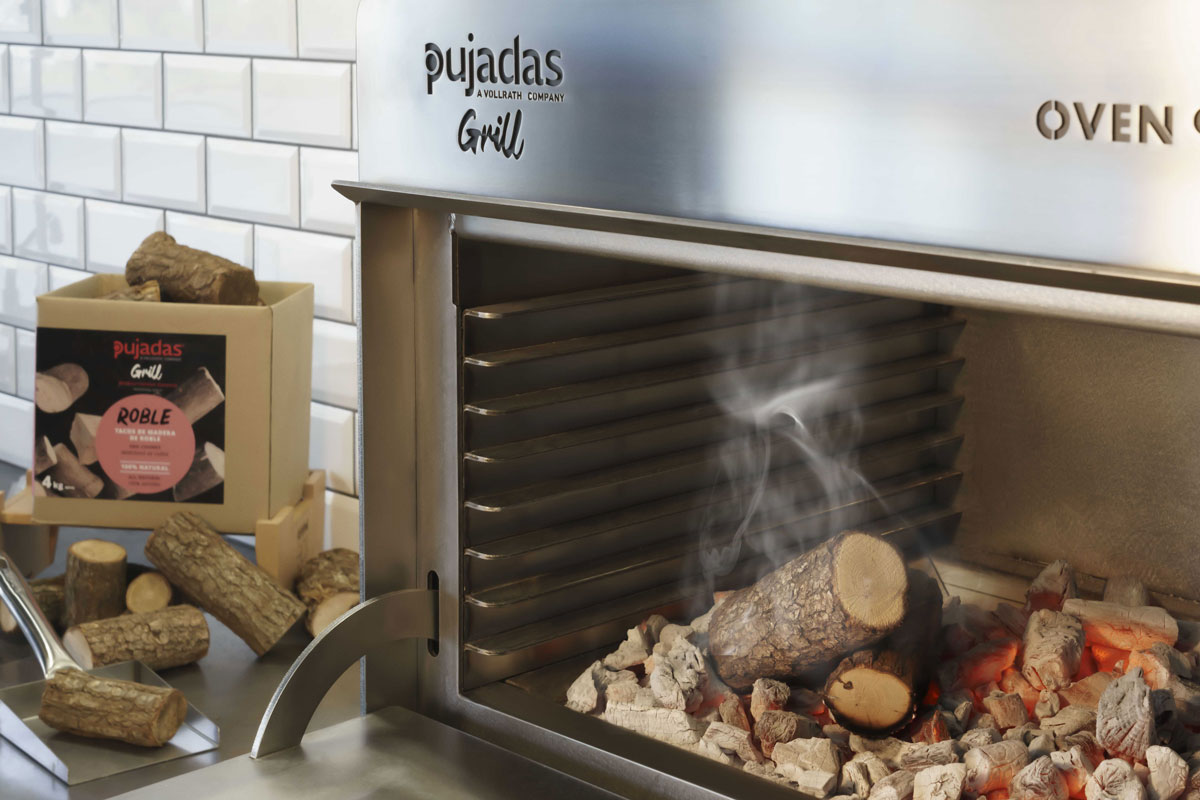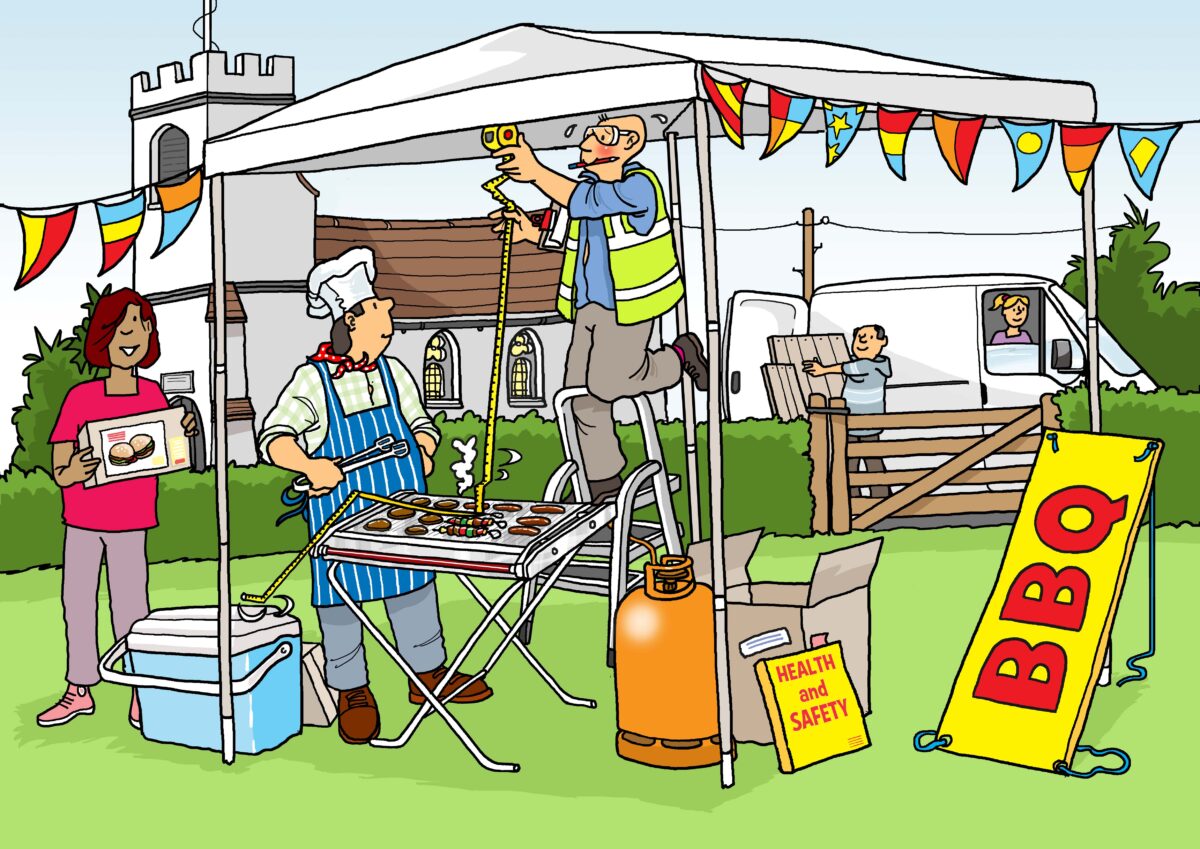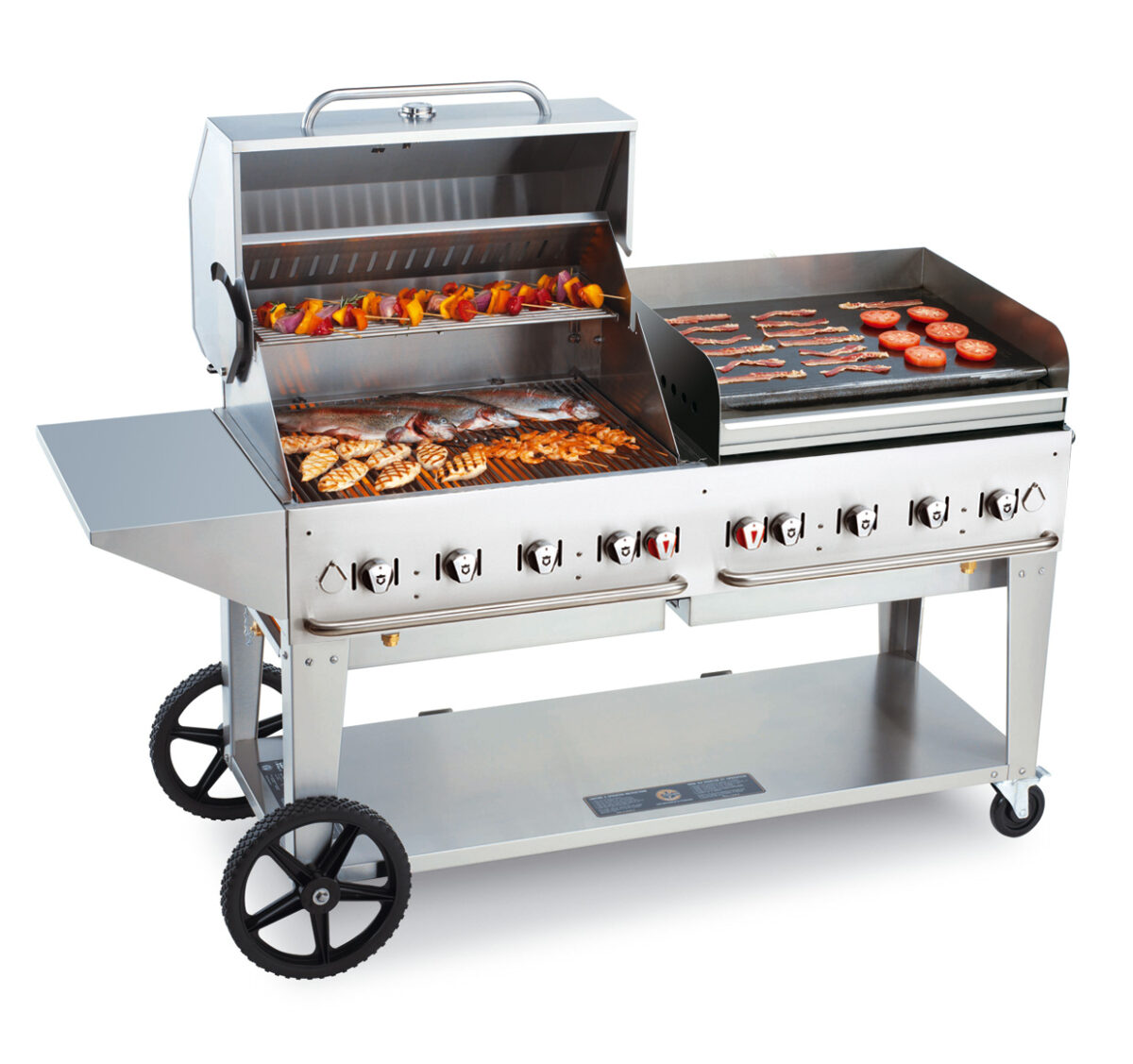
Barbecue flavours are irresistible – but professional delivery remains essential
By Gordon Davidson
Barbecues, with their primal combination of meat and fire, sizzle and smoke, appeal to the inner caveman under each customer’s civilised skin, offering a viscerally rough-around-the-edges meal that reconnects them with simpler times.
But while under-cooking, over-cooking and food mixing may have been tolerated during the Stone Age – or at more recent back garden gatherings fed by enthusiastic amateurs – for a food service business, the reality of a barbecue or street food offer is that all the standards of a professional kitchen still need to be scrupulously maintained, whilst imparting those vital al fresco flavours.
So the first consideration in the run up to introducing or enhancing a street food offering at your venue has to be the barbecue itself. And the experts agree, nothing less than a professional grill will do.
Head of sales at RH Hall, Duncan Vipas, stressed: “First and foremost, caterers should ensure that they are purchasing truly commercial equipment. Many domestic barbecues look the part, but will not last or be able to recover quickly during a busy service.
“Look for a barbecue that uses commercial grade stainless steel – be wary that many domestic models use stainless steel but are of light duty construction – and also check out the cooking grids. Stainless steel work much better than coated ones that chip and flake off in time.
Vipas continued: “Consider heat up times – this can be as little as six minutes! Look for good portability as many barbecues have poorly constructed wheels. Importantly, ensure the product comes with a full commercial warranty. Remember that you would not buy a domestic cooker for your commercial kitchen so apply the same thought process for your outdoor barbecue.”
Commercial director at FEM, Mark Hogan, highlighted the availability of well-designed charcoal ovens that rival gas-fuelled barbecues for performance, while retaining the hot coals culinary advantage.
“The distinctive flavour and popularity of charcoal cooking comes from the juice of the food itself permeating the hot coals, creating aromatic particles and enveloping the food in smoke,” said Hogan.
“Pujadas Inox charcoal ovens make this type of cooking available year-round, come rain or shine. It is suitable for meat, fish, seafood, vegetables, rice, pizza, desserts, pastries, and much more.”

Hogan said that the design of the Pujudas inner chamber favoured air recirculation, ensuring even distribution of heat and optimum performance. The cooking temperature is controlled by regulating the flow of air entering the oven, giving a working temperature range between 250°C to 350°C.
“Using charcoal or wood chips in this way, instead of using gas or electricity, is not only cheaper but also cooks items 40% faster than conventional chargrills,” he added.
To help chefs enhance the flavour of their barbecued offer, FEM supplies a range of wood chips specially made for the Inox charcoal ovens.
For hospitality businesses wanting to test customer demand for a street food offer without over-committing to equipment, manufacturer Cinders Barbecues has a website carrying links to rental companies which hire out equipment, and also hosts videos with cooking ideas.
And the company itself reiterated the advice that choosing the right equipment to suit your hospitality venue starts with finding a good dealer who will provide advice and back-up for a carefully selected range of products.
“The main pitfall is to go down-market with equipment intended primarily for home use which doesn’t offer a warranty for commercial use, and which won’t enhance the perceived value of your offer,” said Cinders, which also warned against premature specialisation of equipment.
“Outdoor pizza ovens are a great attraction but are maybe a later option when you become known for street food and are ready to make a significant investment. The easy choice is a commercial Liquid Propane gas barbecue which can cook as well as keep gastronorm containers warm, straight from the kitchen.”

Again speaking to those just starting their street food adventure, Cinders noted that burgers are still top of the list when it comes to barbecue food.
“Thinner burgers are best as heat can be fierce on a barbecue and it takes time to cook a chilled product through to the centre. Try thinner ‘double burgers’ which are perceived as good value and worthy of bragging rights in a pub or bar context.
“Anything spicy is now on trend and this can be achieved by a hot sauce or relish supplement, rather than adding to your range of basic items.”
Looking beyond the basics, Vipas at RH Hall noted that customers’ expectation of an increasingly sophisticated menu, incorporating vegetarian and vegan options, required greater flexibility in commercial barbecue equipment.
Recommending the Crown Verity range of professional barbecue systems, Vipas said that accessory options including griddles, rotisseries, steam pans and more had introduced versatility, allowing operators to re-invent and expand their menus.

“The recent trend for vegetarian and vegan foods can be a challenge for operators offering a barbecue menu, but with a versatile barbecue system chefs can create specific cooking surfaces to prevent cross contamination with meat items,” said Vipas.
“This potentially allows chefs to offer a more creative vegetarian or vegan menu. Look for a barbecue with separate cooking zones to accommodate this – and also independent controls for the different heat settings these products may require!”




















